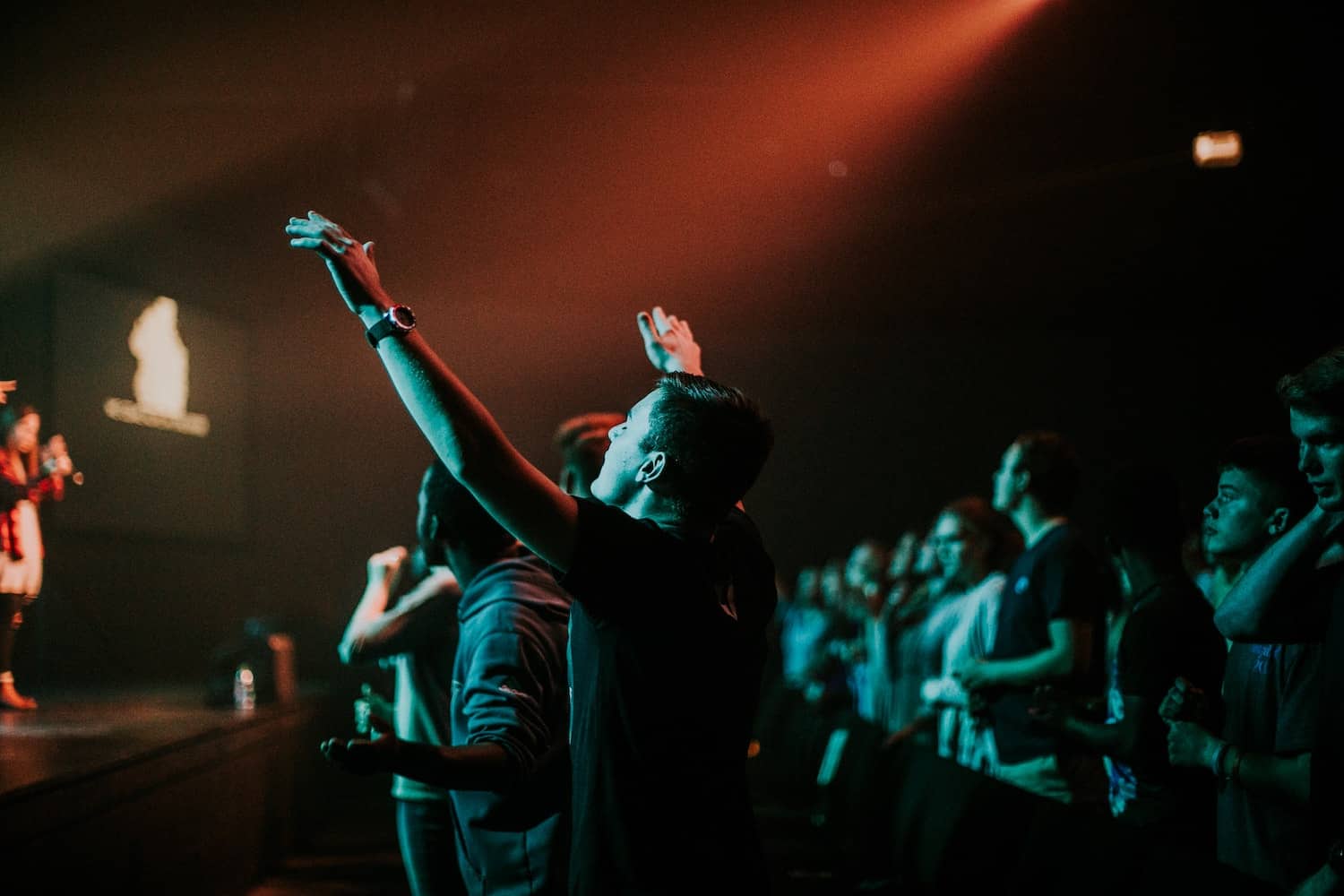Presence. It’s a word that carries a ton of significance. It’s about more than just being in the same place. “Presence” connotes atmosphere. Community. Edification.
During this COVID-19 pandemic of 2020, it’s what we miss most about gathering together on the weekends. Proximity. Being in the presence of one another — of one accord in prayer and worship. Communing as the unified body of Christ.
As we kick-off a new series on the book of Jonah, one of the newest additions to our song rotation at Grace will be Awake My Soul by Hillsong Worship. It is a song about presence. It is a power-filled call to worship.
Here’s the simple chorus:
Awake my soul and sing
Sing His praise aloud
Sing His praise aloud
I love this song for many reasons, not the least of which is its beautiful imagery and the majestic power of presence.
Brooke Ligertwood (What a Beautiful Name, Man of Sorrows, King of Kings) wrote the lyrics and opens with these lines:
There is a sound I love to hear
It’s the sound of the Savior’s robe
As He walks into the room where people pray
Where we hear praises He hears faith
I just love it. There is a lot going on here and some images that are not super common in modern worship music, namely the “Savior’s robe.” At first glance, it might be missed or misunderstood, but dig a little deeper, and I think there is something beautiful to be uncovered. Let’s look at that phrase through two lenses, literal and symbolic, as I think both lenses can serve to edify the body of Christ.
For context, in our present time, the idea of a “robe” is usually just a symbol of posh living or a relaxing afternoon at your favorite spa. Think Bruno Mars in 24k Magic.
Throughout Scripture, however, robes bear a much more significant role:
In Exodus, God instructs the priests to craft robes that carry symbolic meaning in every different piece of the garment, as they preside over the people of God (Exodus 28:1-5).
Jacob demonstrates his favor and extravagant love for his son, Joseph, by gifting him a coat of beautiful colors (Genesis 37:3-4).
David cuts off a piece of King Saul’s robe as an act of defiance and an affront to his authority. He later feels compelled to ask forgiveness, as the offense was so significant (1 Samuel 24:1-5).
Job tears his robe to signify grief and a relinquishing of authority (Job 1:20).
Upon his return from a season of sin and debauchery, the first thing the Father gives His prodigal son is a robe (Luke 15:22).
As a sign of mockery, Roman soldiers put a purple robe on Jesus as he claims to be a king (Matthew 27:28).
In the Old Testament, specifically, a robe was symbolic of a special presence. Kings wore lavish robes, as they were a grandiose display of the power and victories of that king. In a literal sense, when a king entered the room, an atmosphere of reverence and awe accompanied Him.
I was talking to my wife, Amber, about how the lines of the song impacted her in a literal sense, and as a diehard C.S. Lewis fan, her mind went immediately to the great lion, Aslan, from the Chronicles of Narnia.
In Disney’s The Lion, the Witch, and the Wardrobe film, there is a moment when the sons and daughters of Adam meet Aslan for the first time. The moment is filled with anticipation, expectation, and silence. Then out of the silence, Aslan enters the scene.
He is majestic. He is inspiring. He is King. He is good.
In the silence that accompanied the procession of a king, often the only thing that was heard was the brushing of his robe against the floor, as he walked among his people to assume his place on the throne. The sound of his robe would be the only thing heard for some time, as many kings had robes with trains that extended far behind them. The longer the train of a king’s robe, the more authority and majesty that robe carried with it. Stay with me, it’s about to get good.
If this is a call to worship, why does the song mention an Old Testament symbol of royalty in the same lines as praises sung to God? From it’s opening stanza, this song is drawing a brilliant parallel between the unmatched majesty of conquering kings in the Old Testament and the gathering of the rescued people of God in the New Testament.
The “sound of the Savior’s robe” is the worship of the Church. It’s why we “Sing His praise ALOUD.” We are the visual representation of His victory over death. A glorious display of His majesty. A royal priesthood. A holy nation. A people called from darkness into light. In Him, we have life, and breath, and everything. His glory is our good!
Before this pandemic became a reality for us, I enjoyed arriving a little early on Sunday mornings. I would turn on the lights and spend a few moments soaking in the silent sound of anticipation. Anticipation of the King of Glory in the midst of His people gathered together. Songs. Shouts. Sacrament. Celebration. Reverence. Awe. Worship. Of course, Jesus was with me in those moments of personal worship, but there is undoubtedly a unique presence and power of God when the gathered Kingdom of Heaven on earth lifts up our praise together.
The bridge of the song declares:
And when He moves
And when we pray
Where stood a wall now stands a way
Where every promise is amen
And when He moves
Make no mistake
The bowels of hell begin to shake
All hail the Lord! All hail the King!
The unified body of Christ, where the Spirit of God is moving, is a powerful thing. It is a holy thing. It is sacred. It is a glorious sound of salvation. Hell will not prevail against it.
As the children of God, we shout an anthem of grace laced with a resounding victory.
We sing it in the darkest night and in the brightest dawn. The King is on the move. He has entered our world. He has entered the room. Our living room. Our sanctuary. The soft brushing of a holy garment on a throne room floor has erupted into a sacred song of redemption.
He is here. We are here. Wake up, you slumbering. It’s time to worship the King of Kings.






Excellent article, thanks for helping me better understand and think about the lyrics we sing on the weekend.